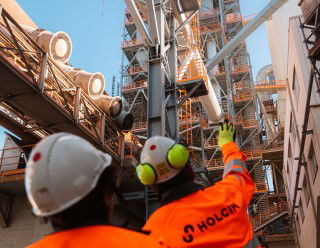This week the Brazilian anti-trust organisation, CADE, passed Companhia Siderurgica Nacional's (CSN) first hurdle in its attempt to fully acquire the Holcim Brasil enterprise for a value of US$1.025bn. ICR looks at how CSN will line up in Brazil's cement market if the CADE board gives final approval for the acquisition.
CSN is well known for its steel, mining, logistics and energy operations as well as its investment into cement production. The conglomerate has been a domestic player in Brazil's cement market since 2009. As well as the 2.4Mta Volta Redonda integrated plant in Rio de Janeiro, CSN owns the 2Mta Arcos (Minas Gerais) grinding plant built in 2015 and last year it acquired the 1.1Mta Elizabeth Cimentos plant in Paraíba state.
The company has a total cement capacity of 5.5Mta and this will rise significantly to approximately 17.21Mta with Holcim Brasil's 11.71Mta of cement capacity. The Holcim divestment includes five integrated plants, the largest of which is the Barroso plant (3.6Mta), four operational grinding plants and a closed grinding unit in Rio.
Slag cement advantage
CSN is in a competitive position to make inroads into the blended cement sector in Brazil as it has readily-available quantities of blastfurnace slag that can be used as a raw material in the cement manufacturing process. Using slag cements, the company achieved a clinker factor of 58.2 per cent in 2020. The Presidente Vargas steelworks already supplies the Arcos grinding plant with slag and the company's portfolio of cement extends to CPII E 32, CPII F-32, CPIII 32 RS, CPII E-40 e granel: CPII-E-40 e CPIII-32 RS.
Organic growth
While growth by acquisition has been slow for CSN until now, it had been looking to accelerate organic growth by building a 3Mta integrated greenfield plant in Paraná. This project was announced in 2019 and was scheduled to be commissioned in 2022, but the COVID-19 pandemic is likely to have delayed this project. Moreover, the IPO scheduled for 2021 was postponed as COVID-19 took hold in Brazil. The IPO would have raised funds for the Holcim Brasil acquisition. However, plans to revisit shares in the company’s cement division could be delayed until the investment climate picks up and the Holcim units are fully integrated into the group.
Belo Horizonte power base
CSN may well not proceed with its Paraná greenfield project in the short term, with most of the Holcim plants gravitating the company more towards the state of Minas Gerais, where construction hubs can be found, especially in the large urban populations of Belo Horizonte, Uberiâdia and Juiz de Fora. Most of CSN's mineral reserves are also located in Minas Gerais where it has an iron ore capacity of 33Mta.
The acquisition of the Holcim plants will mean CSN's cement division will no longer taking a back seat in the company's portfolio. CSN will almost instantly become the second-largest cement producer in Brazil behind Votorantim (35.1Mta) and just ahead of InterCement (16.38Mta), according to The Global Cement Report 14. CSN will operate two factories in close proximity in the northeast with the Elizabeth plant in Alhandra and Caaporã plant further inland. The Holcim acquisition will give it better access to the Brasilia market with the Cocalzinnho grinding unit and the Claros plant. The other aquired facilities will strengthen the group's power base around Belo Horizonte and Rio de Janeiro with the Sorocaba grinding unit aiding distribution in São Paulo.
Outlook
February 2022's cement sales in Brazil rose 1.2 per cent YoY and the Brazilian cement association, SNIC, has stated that sales are improving as the labour market returns and COVID-19 cases decline. The move by CSN to expand its cement sector may well prove to be a bold decision as Brazil's cement sector starts to show signs of reviving. It follows the acquisitions of CRH Brasil by Companhia Nacional de Cimento (owned by BCPAR in which Buzzi Unicem owns 50 per cent) and Titan Group's decision to dip its toes into the market as well as Vicat's acquisition of Ciplan. The difference with this deal is that CSN is a Brazilian conglomerate that is supported by its steel division. The domestic cement market is now controlled by three powerful groups. The main risk CSN may have to live with is its exposure to rising energy prices. CSN's alternative fuel usage totalled to just 1.1 per cent in 2020. Therefore, investment in renewable energy and alternative fuels are likely to be rising up the agenda of CSN's discussions in 2022.
Sindicato Nacional da Indústia do Cimento (SNIC) will report on the Brazilian cement market in ICR's August 2022 issue.
